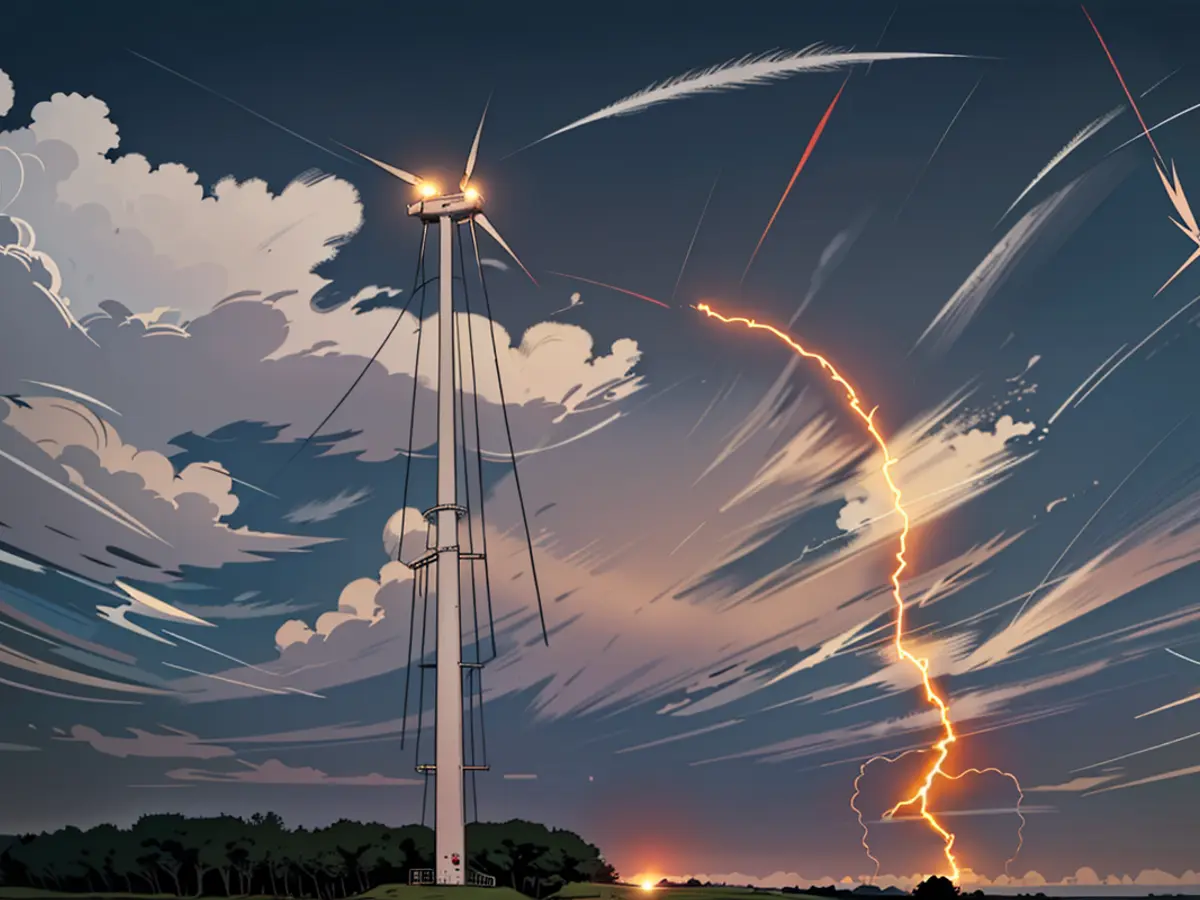Numbers go up - Trend change reached? 90 new wind turbines requested in Bavaria
In the first five months of the year, 90 Wind energy plants had application approvals requested in the Free State, and approvals were granted for 16 of them. The Bavarian Economic Ministry announced this in response to an inquiry from the German Press Agency in Munich. The average power output per applied plant is around 6.7 Megawatts. In addition, 64 applications were submitted for the year 2023, which is "as many as since 2014."
Aiwanger sees confirmation of the trend in Bavaria
"These numbers clearly demonstrate the trend in Bavaria," said Economic Minister Hubert Aiwanger (Free Voters). The realization times for wind energy projects are relatively long. Therefore, the measures taken in the Free State to accelerate the expansion of wind energy have not yet been reflected in the expansion figures – "but rather in the application figures."
Currently, there are 134 wind energy plants with a total capacity of approximately 764 Megawatts that have been applied for but not yet approved in Bavaria. According to the ministry's statements, 46 approved plants have not yet gone into operation (as of 04.07.2024).
Bayern had only four new wind turbines commissioned in the first half of 2024
The latest statistics from the German Wind Energy Association show that Bayern had a real increase of four wind energy plants and a total capacity of 21 Megawatts in the first half of 2024, placing it once again among the bottom performers in the national comparison. Only Saxony, Thuringia, the Saarland, and the three city-states Hamburg, Berlin, and Bremen ranked below it.
The slow wind energy expansion in Bayern is the result of a regulatory policy that significantly hindered the expansion through restrictive provisions. In 2014, the CSU introduced the so-called 10H regulation, which required that the distance between a wind turbine and a residential building be at least ten times the height.
Even Soeder long advocated against "landscape conservation"
As a result, the wind energy expansion in Bavaria came to a virtual standstill, and an opposing attitude towards the rotors spread throughout the state. Minister President Markus Soeder (CSU) also spoke out against "landscape conservation" for years. It wasn't until 2022 that the state government relaxed the regulation – under pressure from outside. Studies have since shown that the still valid 10H regulation significantly hinders expansion.
- Hubert Aiwanger, the Economic Minister of Bavaria and a member of the Free Voters, emphasized the increasing trend in renewable energy, specifically wind energy, in the region.
- The Bavarian government has initiated measures to speed up the expansion of wind energy, although the impact on the expansion figures has not yet been significant but rather visible in the increase in application numbers.
- The German Press Agency reported that 16 out of 90 wind energy plant application approvals requested in the first five months of the year in Bavaria were granted, with an average power output per plant around 6.7 Megawatts.
- In addition to the approved wind energy plants, there are 134 applications for wind energy plants with a total capacity of approximately 764 Megawatts currently pending in Bavaria.
- In a contrasting development, Bayern saw the commissioning of only four new wind turbines in the first half of 2024, with a total capacity of 21 Megawatts, which placed it among the lowest performers in Germany.
- The slow expansion of wind energy in Bavaria is largely attributed to regulatory policies, such as the 10H regulation introduced by the CSU in 2014, which significantly hindered the expansion through restrictive provisions.








